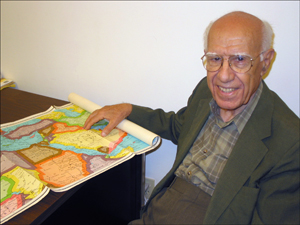OSU professor speaks on state of Middle East
Friday, September 15, 2006

Dr. Raymond Habiby, Oklahoma State University emeritus professor of political science, points to the aftermath of World War I — when the British and French carved the former Ottoman Empire into separate nations — as the beginning of modern Western influence gone awry in the region.
Middle Eastern countries began attempts at reunification under the Arab League following
WWII. Still, their attention gave way to a shared animosity toward the newly established
Israel, which had the support of the United States and Europe. Arab nationalism, as
a sentiment of unity and identity among Arab countries and their peoples, subsequently
devolved from secular into theocratic, and the growth of Islamic fanaticism has thrived
since Habiby said.
While territories such as the Golan Heights and West Bank may be disputed as “liberated”
or “occupied,” Habiby said Arabs view the United States’ seemingly uncompromising
support of Israel’s position as an endorsement of Jewish conquest in the region. And
any chance of achieving peace will remain elusive.
Habiby has been a faculty member at OSU for more than 40 years. His expertise includes
Middle Eastern governments and politics, international relations, international institutions
and public administration. He has spent time in Libya, Saudi Arabia, Jordan, Iraq
and Bangladesh, frequently on visiting or guest professorships through the U.S. Information
Agency’s AMPART (American Participation) program and with the U.S. State Department.
Before coming to OSU, he held a post at the Cairo embassy and worked as an attorney
in his native city of Jaffa.
